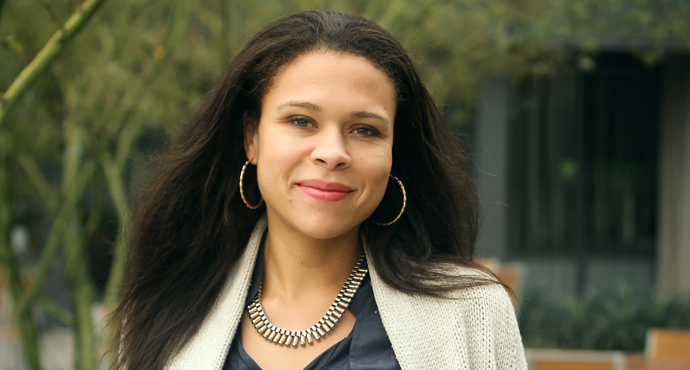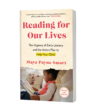Gila Jones played it safe in her twenties, following a well-worn path from a government degree from Harvard University to an NYU law degree and a job with a prestigious law firm. After five years with the firm, she took an unexpected leap into the corporate world and became general counsel of an LA-based apparel company. At 31, she traded the security of a defined career ladder for the challenge and responsibility of leading an entire legal operation. Sixteen months in, she’s still leaning in and loving it!
- Name: Gila Jones
- Age: 32
- Work: General Counsel for a Los Angeles-based fashion brand
- Educational background: Bachelor’s degree in government from Harvard University; Law degree from New York University
How would you describe your typical work day?
Wake up, make a ‘to-do’ list, try to go to Pilates or take a walk, and try to get to the office before 8:00 or 9:00. I find that I don’t do one task at a time to completion. I usually bounce between different things, which is probably not most efficient. It’s hard not to get distracted because I start thinking about other things or the phone rings or urgent emails come through. But usually by the end of the day, it kind of comes together and I’ve gotten 75% of the things done that I wanted to do.
And what’s your typical weekend day?
Depends on the season, but I try to do as little as possible. In fall, Saturday I run a few errands and do some afternoon reading. Sunday is brunch and football.
Why do you think it’s so important to limit the running around on weekends? How does the routine serve you in terms of your career and working towards your goals?
I need to rest. A lot of people say “sleep is for the dead.” I laugh at that. Sleep and rest are really important. They keep you looking and feeling good, and allow you to come back to it focused and energized. It’s something I’m still working on. I’m calling my weekends “staycations.”
Do you feel like you’ve had to make any compromises or sacrifices in order to obtain the position that you’re in now?
When you work as an associate at a very large law firm, there is certainty; you know your place, you know the expectations, and you are generally told what needs to be done, if not how to do it. In the business world, the path to effectiveness is a little less clear – you have to determine how you will make an impact. But I’ve gained a lot more than I’ve lost.
What would you say you’ve gained?
I know a lot more about a particular business I didn’t know about before. I’ve had the opportunity to create a whole new function within a really exciting and dynamic company. I get to advise brilliant and creative people to help them do what they do better. I exercise a lot of autonomy and independent thinking, which I eventually came to experience at the law firm, but now it’s times ten.
You traded a little bit of security at the law firm for this role and have been rewarded with a lot of challenges and exciting work. You said you’ve also gotten your weekends back. What more could you ask for?
A chef.
How is your motivation changed? When you were in a law firm context, you talked about the clear expectations. Now you’re leading a department, what pushes you to take the next step when you don’t always know exactly what it is?
That’s a good question. At the law firm, I was focused on not disappointing my partners, who were my teachers in the law. Obviously, when you’re inside counsel, the connection to the client is stronger. You serve directly the businesspeople, and you are motivated by doing your best to safely advance whatever objectives the businesspeople have while protecting the company’s best interests.
What do you do with feelings of fear or self-doubt?
The fear (particularly of failure) is common, especially when I start a project that involves foreign issues. To control the anxiety, I make a list of questions that I can answer: What is my goal and by when can I achieve it? What does the final product look like (memo, presentation, email, call)? What questions do I have about the subject? Who do I know with expertise in the area? Who within my organization has knowledge and/or will be affected by my work? As I check off the boxes, I’m doing and learning — the process alone restores the comfort and self-belief. Because you’re not failing if you’re trying.
When I’m feeling fearful over the bigger, less tangible issues, such as am I on the right track in life, am I doing enough to be a good person, I find peace in hard work (work meaning many things: an extra hour at the office, a random phone call to a distant relative). I like to intone (incorrectly) John Wooden: success is peace of mind knowing you did all you could do to be your best.
Doubt and fear are relatives, but doubt is usually expressed in my head as “am I doing this right?”
Ultimately, it’s difficult to know when you’re doing something for the first time, even after consulting other resources. I think the most you can ask of yourself in these situations is to engage in honest self-assessment after the work is done. Give yourself credit for what went right, but get busy focusing on what you could have done better to communicate your ideas and work product more effectively, more timely, more meaningfully. That way you will do the same task better next time, and also new tasks as the mind becomes disciplined to think critically about process.
What was the worst mistake you’ve made professionally and how did you recover?
One blunder jumps to mind: A partner that I had not worked with before was supervising me while I wrote a brief for another partner that was out of town. It wasn’t going well, so I typed an email to my best friend in the office, complaining that I didn’t know how to respond to the new partner’s comments. Well, I accidentally sent the email to the partner.
Normally, I would have hid under my desk for the next 12 hours, sobbing quietly. But I had an instinct that the partner would respect me so much more if I had the courage to address it right away. I walked down to her office, apologized and we discussed why I was struggling. Not only did she help with the brief, she became my mentor and is now one of my best friends. We laugh about it now.
What did your twenties teach you?
For the most part I did everything that I was supposed to do in my twenties. I obviously made some missteps. But I really did take a very safe path from college to grad school to working in a very prestigious law firm for almost six years and then all of a sudden my twenties were over.
I guess approaching 30, I realized that time is very precious and that I needed to be more mindful. It’s a matter of being thoughtful about what you deserve and making sure you demand that in every context. You have to practice it. It’s not easy.
What would be an example of practicing advocating for yourself?
At least professionally, I think you have to take stock of what you know and what you don’t know, what you can offer and what you actually deliver, and make sure you’re communicating that at all times. Just be less fearful and more open about what you’re doing now and what you’re capable of doing in the future. I think other people respond to that and the opportunities come.
What are you teaching your 30s?
I’m trying to teach this period to be more aware of myself, aware of others, to respond from a place of love and reason, and not to be too judgmental. And, when I’m not working super hard, simply enjoy being. All easier said than done. I feel like I’ll be 39-and-a-half before I’ve actually figured out how to do that, but that’s the objective.
Is there anything I haven’t asked that you think is important to mention just about being a smart, ambitious, career-oriented woman? Any advice for women in their 20s who are trying to get where you are, or get to their own place?
I recently met with a young woman who wants to do what I’m doing, and she’s really set herself up very well. I encouraged her to continue to meet with people and gain an understanding of what it is that we’re all working at. But I also told her to relax a little bit, enjoy being young and relatively unburdened and not to take on too much pressure prematurely. She didn’t seem very moved by that, but it’s hard to process that advice until it’s probably too late.
Oprah, Martha, Michelle, or Hillary?
Oprah. They’re all amazing women and incredibly accomplished, but I feel like I’ve grown up with Oprah. I’ve known her for 20 years. I’ve seen where she’s come from, what she’s about, and I really admire her. I can’t even articulate it very well. She’s built an empire just out of being herself.


